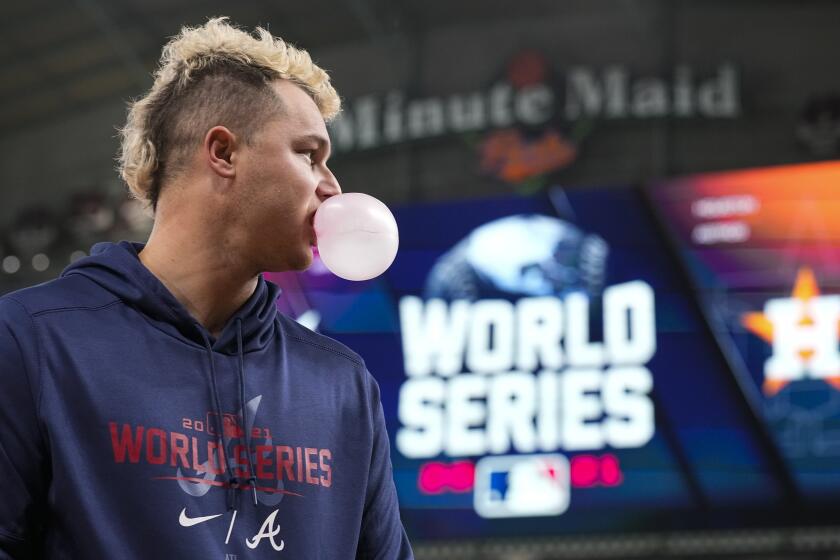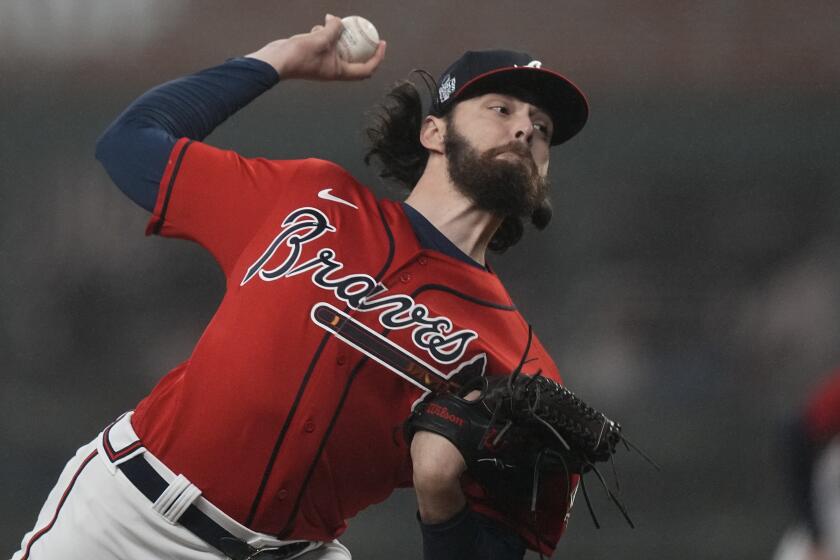Hank Aaron’s legacy shines bright in World Series marked by scandalous subplots
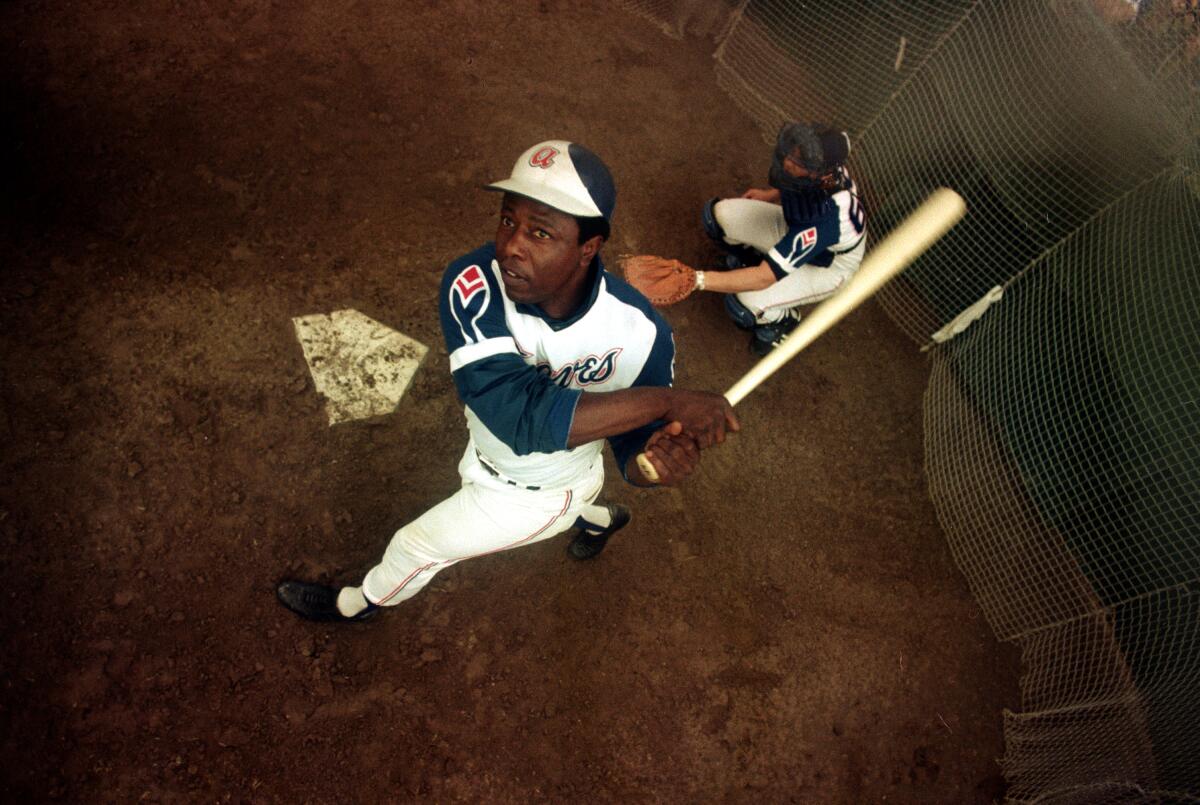
ATLANTA — The night began with tears. It almost ended with them too.
In a World Series that has been scarred by memories of one team’s cheating scandal, of criticism over the other’s outdated rituals and of reminders about all the other ills afflicting the game, this was a moment that was needed.
Nine months after his death, Hank Aaron’s legacy had once again become a saving grace.
Ever since the matchup between the Atlanta Braves (Aaron’s former team) and Houston Astros (managed by Dusty Baker, one of his closest former teammates) was finalized this month, Aaron’s memory was always going to take center stage.
His number “44” has been displayed across the center field grass at Truist Park, as it has been all season after he died of natural causes in January. His name has been invoked by both managers, each of whom considered him a long-time mentor and friend.
The Dodgers harnessed Joc Pederson’s October energy on the way to winning the World Series last year, and he’s doing the same for Atlanta vs. Houston.
“Hank’s footprints are all over this series,” Baker said.
Added Braves manager Brian Snitker: “As much as who Hank was and what he meant to the game, I think about him as just a really, really good friend.”
It all coalesced in a first-pitch ceremony prior to Game 3. Aaron’s widow Billye took the field and softly cried while her son, Hank Aaron Jr., fired the ceremonial pitch to Freddie Freeman.
From the Astros dugout, Baker raised his arm and pumped a gloved fist.
“I think about him all the time, especially in a series like this,” Baker said. “I feel his presence.”
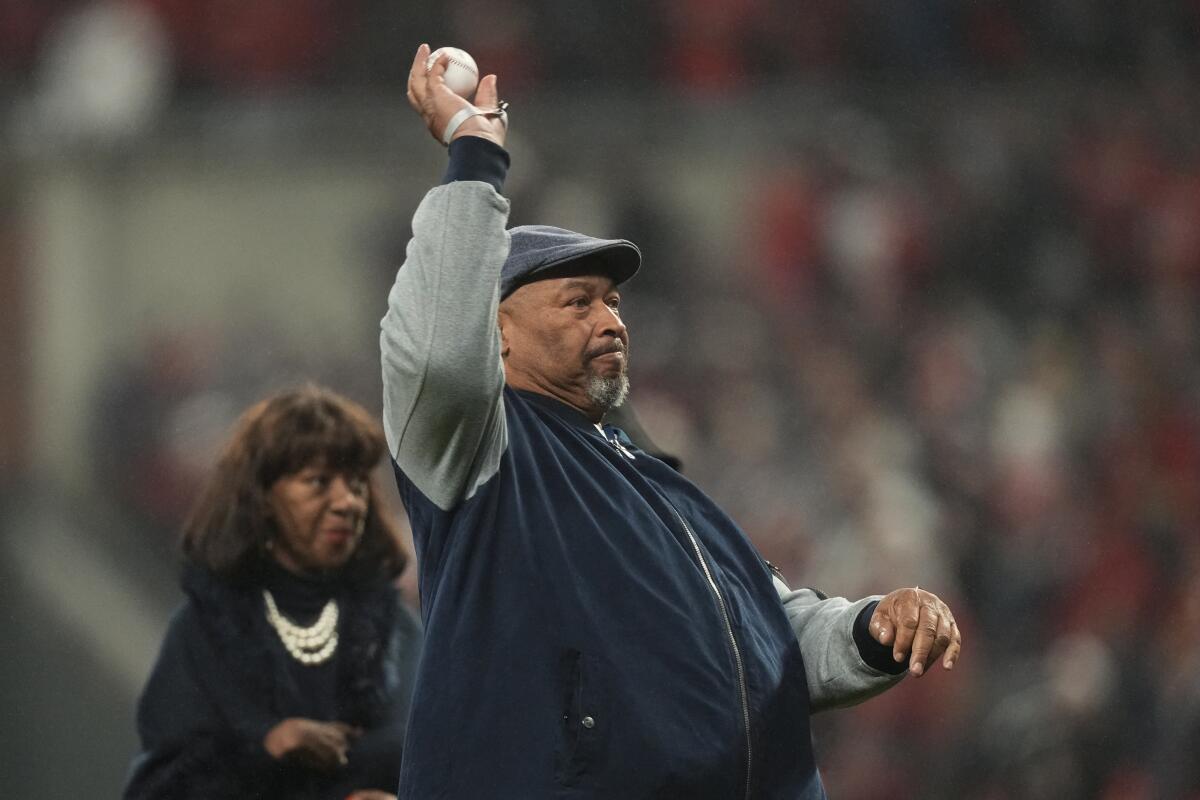
Postgame, Snitker got choked up in the interview room while trying to describe the scene.
“I got to hug Billye, you know, and,” he said before a long pause, “tell her how much I missed Hank.”
Every other game of this series has been accompanied by messy subplots.
Before Game 1, the Astros faced familiar questions about their 2017 sign-stealing scandal, which two years after becoming public continues to stain the reputation of one of the league’s most visible franchises.
Leading into Game 2, commissioner Rob Manfred was lambasted after his tone deaf defense of both the Braves’ team name and widely ridiculed “tomahawk chop” ritual at home games — saying that, despite calls from Native American groups that the caricature of their culture is degrading and dehumanizing, it’s OK for the Braves to continue because the league doesn’t “market our game on a nationwide basis” and the Native American community near Atlanta is supportive of the team’s branding.

Hank Aaron’s historic 715th home run.
And then, in the hours before Saturday’s first pitch, the league had to publicly clarify in a statement to Sports Illustrated that former President Donald Trump had not been invited to Game 4 in Atlanta — as a statement from Trump earlier in the day had suggested — but instead asked to attend the event on his own accord.
If the World Series is supposed to be the league’s ultimate opportunity to showcase the sport, then this year’s edition has had the opposite effect. Like a blacklight revealing uncomfortable truths, baseball’s problematic tensions and underlying issues have instead sparked outrage and debate.
The recognition of Aaron’s memory, meanwhile, has provided a contrasting distraction, memorializing a life spent breaking down barriers and expanding the baseball’s reach.
“I’m just so glad that we were able to as an organization make it to the World Series,” Braves reliever Tyler Matzek said, noting the club had been planning similar commemorations for the All-Star game before the league relocated it to Denver in protest to the passing of a controversial voting rights law in Georgia.
Atlanta took a combined no-hitter into the eighth inning before defeating the Houston Astros 2-0 in Game 3 of the World Series on Friday.
“I think that us players in that clubhouse kind of felt like we needed to do something so that his life could be celebrated in some way on the biggest stage,” Matzek added. “It’s a little extra motivation just to go out there and show what the Braves are all about, and he was what the Braves were all about.”
Braves 24-year-old third baseman Austin Riley smiled while recalling the times he got to meet Aaron early in his career.
“It was one of those moments that gives you chill bumps,” Riley said. “He’s done so much for this game, even outside of baseball. He’s moved a lot of people.”
Baker and Snitker are near the top of that list.
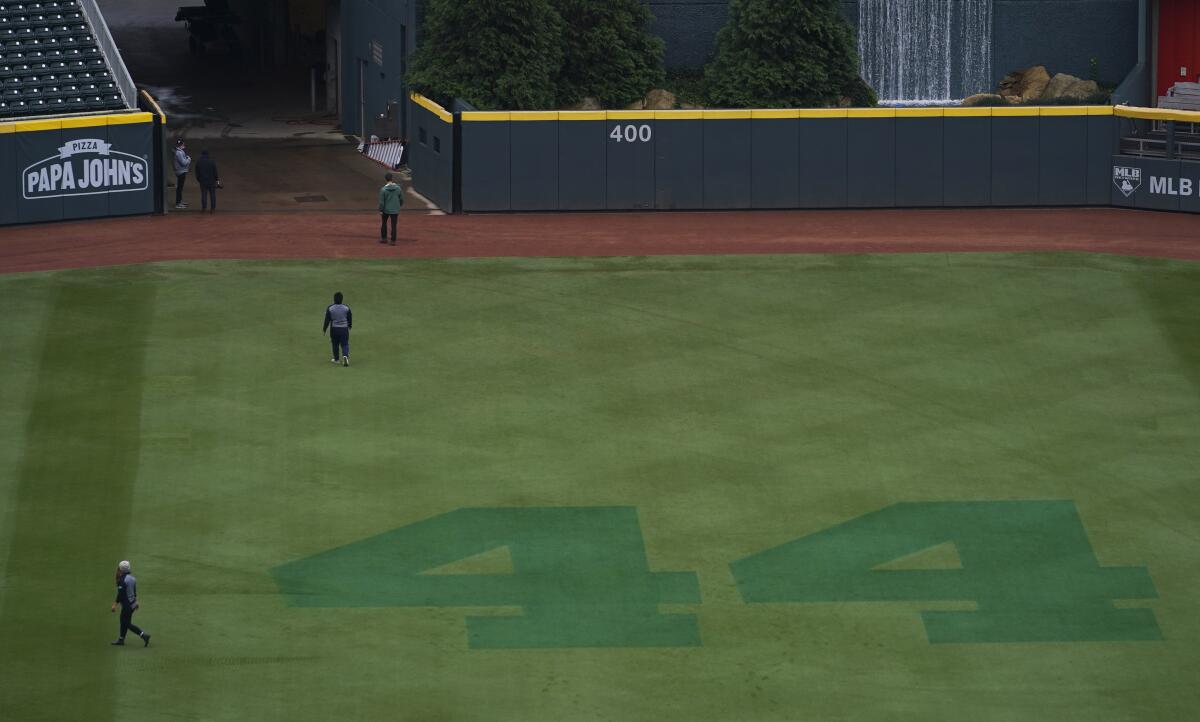
After Aaron helped convince the Braves to draft Baker in 1967, the two were teammates for the next eight years — the start of a lifelong relationship that led Baker to call Aaron one of his biggest personal influences.
For Snitker, Aaron was also a mentor. When Aaron was running the Braves’ farm system, he hired Snitker to be a coach, helping launch a post-playing career that he’s spent only in Atlanta’s organization.
“He helped mold both of us,” Snitker said. “Dusty as a young player and me as a young manager [and] coach. He was very instrumental, I know, in both our careers. I know both of us just loved the man to death for what he did for us.”
Much of the rest of the baseball world feels the same, especially this week. Amid the gloom of renewed controversy, Aaron’s legacy has shimmered once again.
More to Read
Go beyond the scoreboard
Get the latest on L.A.'s teams in the daily Sports Report newsletter.
You may occasionally receive promotional content from the Los Angeles Times.

